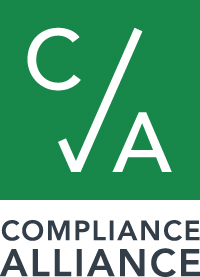|
Question:
If someone inherits a house and has plans to demolish it and build another house, what is the HMDA purpose? Answer: There is no bright-line rule in the regulations or guidance that delineates when a loan like this crosses the line between “Home Improvement” and “Home Purchase.” Many banks consider a loan to cross into new construction when the old home is being completely torn down, including the foundation. At that point, if the lender is going to be doing the construction-permanent financing on the new house, the loan would generally be considered a “Home Purchase” transaction. This is just an example, however, and the bank’s own internal policy needs to make this delineation so that it can consistently evaluate this kind of loan any time it comes up in the bank. A home purchase loan includes both a combined construction/permanent loan or line of credit, and the separate permanent financing that replaces a construction-only loan or line of credit for the same borrower at a later time. Comment 3 to 1003.2(j): https://www.consumerfinance.gov/policy-compliance/rulemaking/regulations/1003/2/#2-j-Interp-3 Home improvement loan means a closed-end mortgage loan or an open-end line of credit that is for the purpose, in whole or in part, of repairing, rehabilitating, remodeling, or improving a dwelling or the real property on which the dwelling is located. 1003.2(i): https://www.consumerfinance.gov/policy-compliance/rulemaking/regulations/1003/2/#i Question:
If we need to temporarily shut down one of our branches to treat for dangerous mold, do we need to give any kind of notice to our regulator? Answer: At the federal level, there’s a specific exemption for temporary closings that are not in the bank’s control (for example, due to natural disaster), and this dangerous mold will likely be considered not in the bank’s control and, thus, subject to the exception: Section 42 also does not apply when a branch ceases operation but is not closed by an institution. Thus, the law does not apply to: • A temporary interruption of service caused by an event beyond the institution's control (e.g., a natural catastrophe), if the insured depository institution plans to restore branching services at the site in a timely manner; .. Interagency Policy Statement: https://www.fdic.gov/regulations/laws/rules/5000-3830.html Even if this is the case, though, providing notice would certainly be good customer service, and our director, who is a former examiner, would consider it a best practice. Question:
I have a quick question related to Regulation D and reserve requirements. If we offer commercial escrow services to hold funds for two or more parties, are these funds held in escrow generally subject to Reg. D? Answer: Yes, escrow funds are specifically included in the definition of "deposits" for purposes of Regulation D: §204.2 Definitions. For purposes of this part, the following definitions apply unless otherwise specified: (a)(1) Deposit means: … (ii) Money received or held by a depository institution, or the credit given for money or its equivalent received or held by the depository institution in the usual course of business for a special or specific purpose, regardless of the legal relationships established thereby, including escrow funds, funds held as security for securities loaned by the depository institution, funds deposited as advance payment on subscriptions to United States government securities, and funds held to meet its acceptances; 12 CFR § 204.2(a)(1)(ii) https://www.ecfr.gov/cgi-bin/text-idx?SID=8ddd88a51a067ba79f787e95219009c7&mc=true&node=se12.2.204_12&rgn=div8 Question:
For examination purposes, should we be logging all changes to our website or just the ones related to compliance? Answer: Since the bank's website is generally considered an advertisement and sometimes contains disclosures required by federal regulations, the bank would want to be sure to retain records of the webpages for any applicable retention periods. How long the pages should be kept would generally depend on the regulation that the content of the page falls under. For example, if the page contained an advertisement for deposit accounts, then the bank would want to retain a copy of that webpage for 2 years under Regulation DD. The bank may also find our Record Retention Schedule helpful here: https://www.compliancealliance.com/find-a-tool/tool/record-retention-schedule-cheat-sheet |
Archives
March 2020
CategoriesCompliance Alliance offers a comprehensive suite of compliance management solutions.
To learn how to put them to work for your bank, call (888) 353-3933 or email info@compliancealliance.com. |


 RSS Feed
RSS Feed
